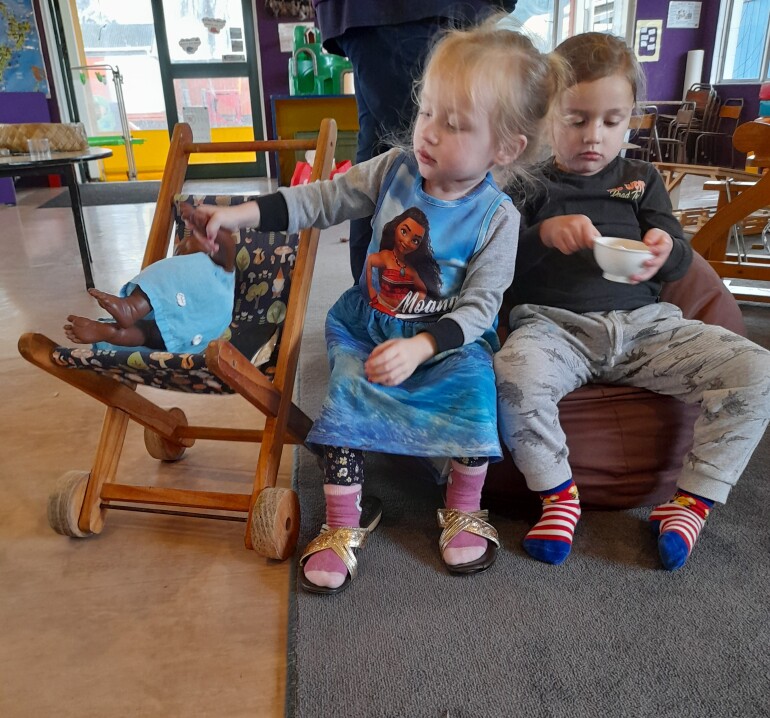News And Events

Family and Dramatic Play
14 December 2021In recent times, tamariki have experienced changes to their routines, home life, and care with their special Educator due to the changing COVID alert levels. When children act out their own life experiences, it helps them make sense of what is happening in their lives and the world around them.
Family and dramatic play can help children to:
- learn to socialise and communicate
- understand new experiences
- learn language, and practise using it
- express their feelings
- be creative by making up their own stories, chants and songs
- learn about cooperating and understanding from another person’s point of view
- gain confidence
- practise problem-solving
- become familiar with the symbol systems of society such as letters and numbers.
Adults can support children by:
- supporting them to put their own ideas into practice, without taking over
- play-acting with them, using language that goes with the play
- helping them solve problems
- discussing their ideas with them and helping them put their ideas into practice
- providing a wide range of culturally diverse materials and equipment for them to use
- stimulating ideas by reading stories and taking them on outings.
Providing for family and dramatic play:
Locating family and dramatic play resources near other materials and equipment such as dough and blocks can enrich the play that occurs. Dough allows children to imitate the home kitchen setting, while blocks allow children to construct their own accessories such as buildings, roads, shops, puppet and storytelling theatres.
Ideas for equipment:
- a selection of dress-up clothes and accessories for role-playing men and women of different cultures and occupations
- dolls, dolls’ clothing, beds and bedding
- table, chairs, kitchen utensils and furniture
- a clothesline with pegs
- toy stoves, cash registers, toy petrol stations
- boxes and lengths of material
- child-height mirror – for safety reasons perspex mirrors are best
- familiar role-themed costumes, e.g. doctors’ coats, police uniforms, chef hats and aprons
- props e.g. brooms, wands, plastic cups and saucers, pots and pans, doctor and nurse sets
- writing materials for children to use in their play, e.g. making menus for a restaurant, money for a shop, sign for a road, invitations to a party.
Te Whāriki:
Family and dramatic play can support learning across all strands of Te Whāriki. In particular, children’s developing capability to be expressive is supported in the Communication strand, where they discover and develop different ways to be creative and expressive. It is also supported in the Contribution strand, where children are encouraged to learn equitably alongside each other.
At Nurtured at Home, with care taking place in a home environment, tamariki have opportunities to explore a range of resources they may also find in their own home and with small group interactions, they have unhurried time and space to engage in family and dramatic play.
Information from Ministry of Education - Learning Ideas


